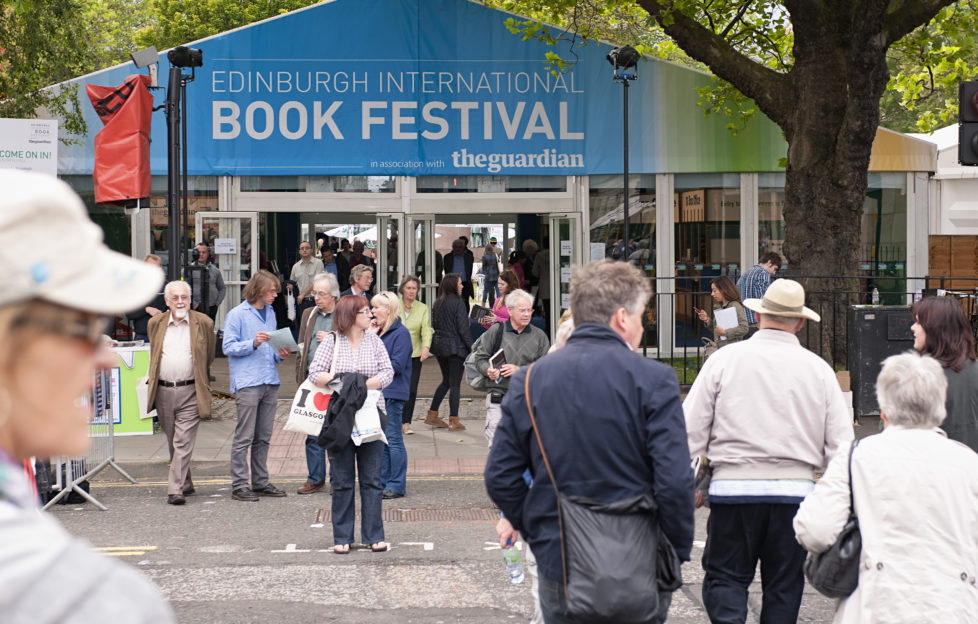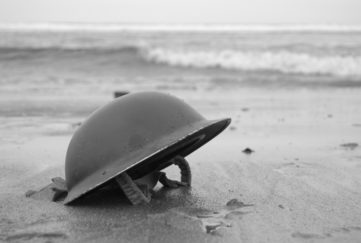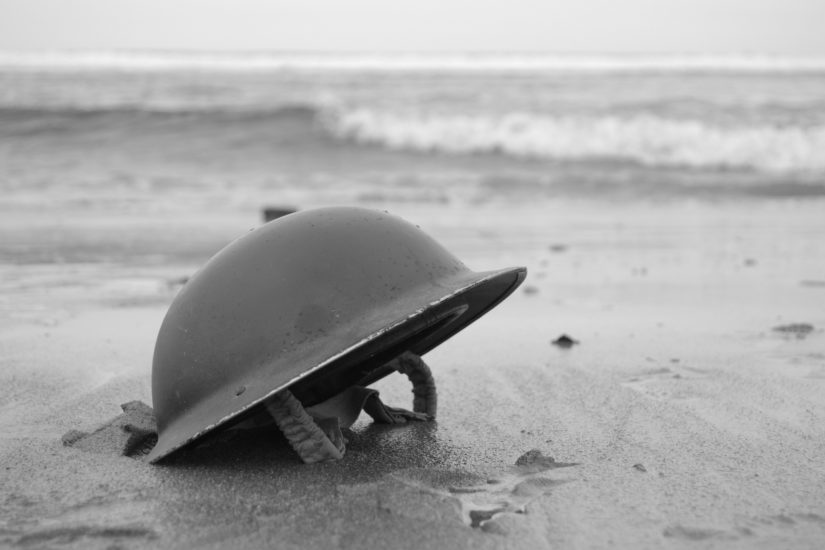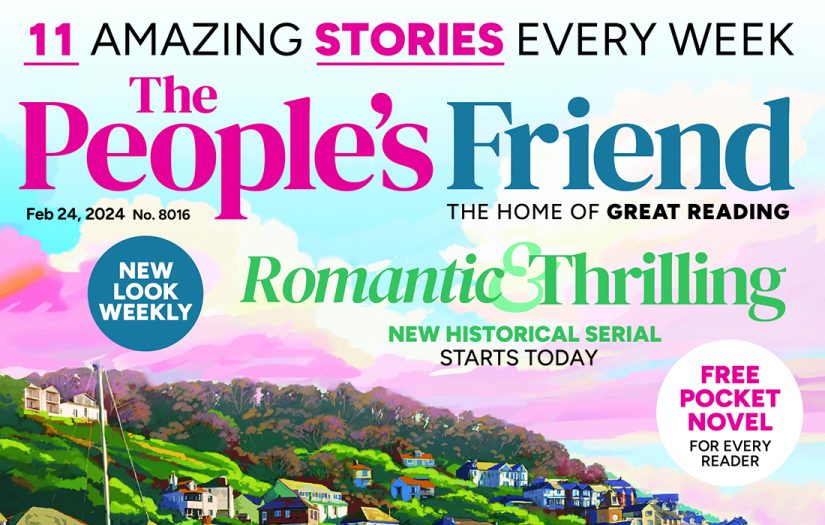Sharon Browses The Shelves At The Book Festival

The Edinburgh International Book Festival is a major highlight of the year for any book lover.
I look forward to it every year, and have been lucky enough to attend events with some famous and inspiring people.
I always take advantage of the opportunity to have a book signed, and to have a chat with the author in the signing tent afterwards.
Over the years I have met renowned actor Simon Callow, award-winning fiction and non-fiction author Lisa Appignanesi, AL Kennedy, Jackie Kay and Ian Rankin to name a few.
Rankin can often be spotted slouching around Charlotte Square Gardens in his familiar cords and jumper, looking most unlike a millionaire author. (I love this about him — he is approachable and friendly, and always up for a chat.)
At this year’s book festival, I was most excited to attend an event with Joanne Harris talking about the latest book in her “Chocolat” series.
As something of a hobby writer, I have always admired her style of writing, and the way she brings mythology and folklore into her writing.
A good place to get advice
Book festival events are one of the best places for aspiring writers to glean some good advice from successful counterparts.
James Runcie chaired the event, and he asked many questions about the writing process, and the choices Harris made in writing the fourth book in her beloved series.
“The Strawberry Thief” is less focused on Vianne Rocher than the previous books. This was a conscious decision, Harris explained.
When she first wrote “Chocolat”, she identified strongly with Vianne Roche. She was living in France at the time, and was the mother of a young daughter.
Much of the book was inspired by her own experience as a mother. Vianne’s daughter’s name, Anouk, is very close to Harris’s own daughter’s name, Anoushka.
As time went on, however, her real and fictional daughters grew up. By the time she came to write “The Strawberry Thief”, Harris felt less of an affinity with Vianne. She felt that she changed as a person.
Instead, she was drawn to write about Vianne’s youngest daughter, Rosette – her “special” child.
Drawing on the knowledge of children she gained during her time as a teacher, she was keen to give the girl a voice.
She wouldn’t say whether Rosette has autism or a learning disability; the reader should simply understand that her difference has value. She also thinks it is vital to have diversity reflected in fiction.
Harris spoke at length about her creative process. In particular about the hours she spends writing in “the shed”, which becomes a magical place and transports her to a fictional location every day.
As always, I had my book signed. And I’m happy to report that Joanne Harris is just as lovely in person as you would hope.
A chance encounter
It was just as I was leaving – my head full of thoughts about writing, chocolate and the creativity of the imagination – that I bumped into former Poet Laureate Carol Ann Duffy.
I had actually met her several times before, as she tours with my cousin, John Sampson. He is something of a musical wonder, who accompanies almost all of her performances.
I took the chance to ask her how she felt about having passed the literary torch to someone else. Her response?
“Just the same.”
She continues to write, perform and teach at a university in Manchester.
She may feel as if nothing much has changed, but by becoming the UK’s first female poet laureate, she changed history.
We left, proclaiming we should all go for a drink sometime.
We say that every year, so I won’t wait around . . .
You can read the team’s latest book reviews here.
If these literary encounters have inspired you to see your work in print, take a look at our submission guidelines.










